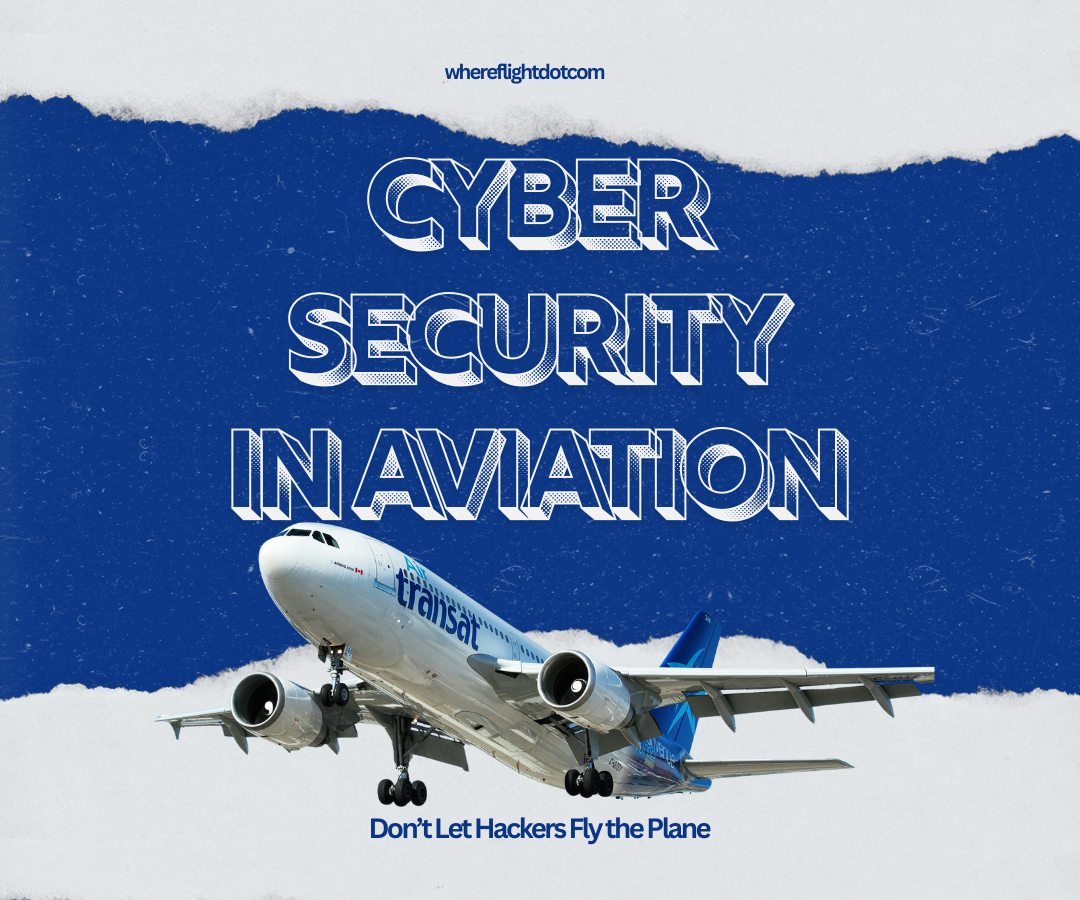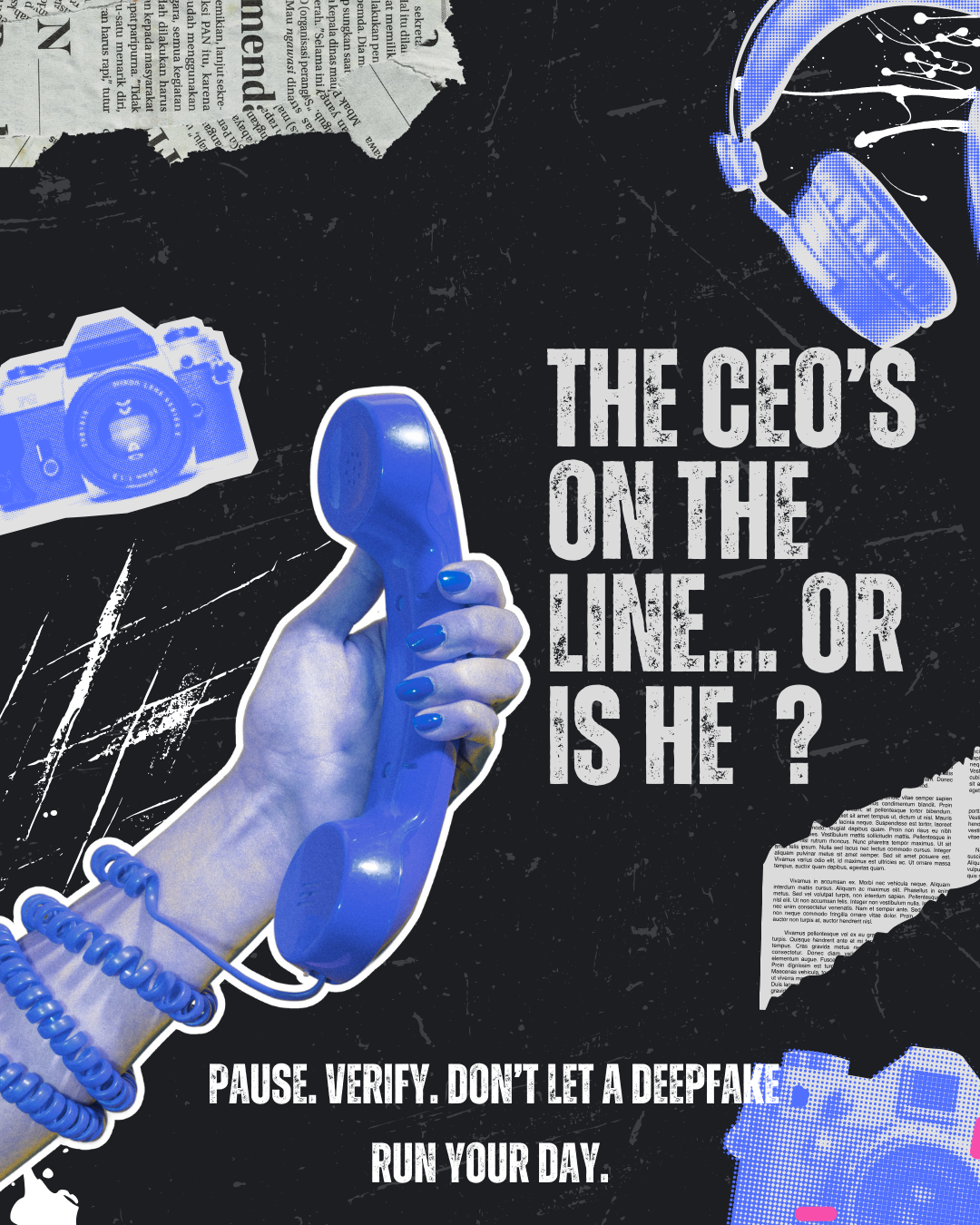Cybersecurity in Aviation 2025
Cybersecurity in aviation is no longer optional. From ransomware at airports to deepfakes targeting airlines, threats are rising fast. By 2025, airlines will spend billions on cybersecurity to protect passengers, flights, and data.

Airports are supposed to be places of order. I want to step inside, forget about any worries in the world, and focus on my vacation. The calming sight of boarding gates, check-in counters, baggage belts—everything has a rhythm. I mean, everything seems… too perfect to be true. Exactly, because while you and I are busy wondering what food to eat once we land, there is a silent battlefield emerging in cyberspace.
Cybersecurity? You might be thinking, “Wake me up when we land in Ibiza.” But trust me, it affects you way more than just flight delays and lost luggage.
I know you hear the word cybersecurity and you don't think much of it. Maybe it’s just some hobby for hoodie-wearing techies. You couldn't be further away from the truth. Cybersecurity, especially in aviation, is a mission that is almost as critical as radar, jet fuel, or making sure your in-flight Wi-Fi actually works.
In fact, we can thank it for turning air travel into an interconnected beast. With smart airports, IoT-enabled aircraft, AI-powered everything—everything sure is faster to do.
Efficiency? Sky-high.
Attack surfaces? Also sky-high.
Folks, welcome to 21st-century aviation: where the sky’s the limit for passengers and hackers. Isn’t development fun?
Every shiny new technology that comes into the airport is basically a neon sign blinking, “Hack me, I dare you.” Or at least that’s how these hackers look at it.
If you're still not convinced why cybersecurity matters, take a look at what happened with Qantas in early July 2025. A call center's third-party customer service platform was breached. It's bad enough already, but it affected up to 6 million customer records. With just that number, you could already tell that this was Australia’s flag carrier’s worst cyber incident in years. They exposed names, email addresses, phone numbers, birth dates, and frequent flyer numbers.
Although, no credit card, passport, or financial details were compromised, you know it's only going to get worse from here. However, with cybersecurity, we might be able to stop this from ever happening again. So buckle up, because I’m about to show you just how lucky we are to have it on board.
The Threat Landscape: Turbulence Ahead
If the aviation sector was a person, he would be a proud guy, always bragging about its “critical infrastructure.”
But in the last three years, it has picked up a new, less flattering title: cybercriminals’ new favorite playground. You might be thinking, it can’t be that bad. Well, you’re right—it’s worse. Between 2020 and 2023, cyberattacks on aviation shot up a jaw-dropping 131% — yes, triple digits. First these hackers started with airports, then airlines, heck, even air traffic control systems have been poked, phished, and breached. Great job, guys, at using your potential.
So why do they do it ?
Well financial lure is a no-brainer. If you ask me for the estimate, a major airport bleeds about $1 million per hour of downtime . Cyber gangs use this to their advantage : pay up fast, or watch the planes stay parked. We all know what option those airlines are choosing.
Money’s one thing, but an airline’s reputation is even more fragile. If you knew some airline was getting hacked again and again, I doubt you'd be dying to travel with it. You see, a cyberattack doesn’t just delay flights—it rattles your confidence. In aviation, perception is everything, and these hackers know it. They love to put the airlines reputation on stake for some millions of dollars.
So what do they get out of it?
Who knows, probably just for the thrill. Or maybe chaos is apparently their favorite in-flight entertainment. Hmm, interesting choice, because personally I like to watch The Sopranos.

Why Aviation Is a Prime Target
So, why does aviation attract cybercriminals like moths to a runway light?
Good question.
In simple terms, airlines are a big deal. If hackers can pull it off, they might as well show the whole world they can crash the party. But validation is just one of the many reasons these people target the airlines:
1. An Interconnected Ecosystem
Airports love to brag about their airline connectivity, but frankly, it's a messy web of airlines, baggage vendors, and air traffic control. Great for moving people. Terrible for stopping hackers. All it takes is one sloppy password, and suddenly the airport network is wide open.
If you think this only happens to airlines, well think again. Hackers once swiped the master key—yep, the administrative password—to a whole segment of the FAA’s network. That little slip gave them the golden ticket: access to over 40,000 credentials controlling mission-critical systems. Imagine what else they can do in next 5 years.
2. Legacy Systems Are Still on Life Support
Half the tech running aviation was designed when disco was still cool. Sure, the music was funky, the burgers cheaper, and the pants shinier—but technology? Not that great, guys. Avionics, radar, ground handling were all built decades ago when cybersecurity meant locking the office door at 5. But it’s 2025 now, and these systems can’t handle encryption or patches, which makes them hacker catnip. Imagine guarding a billion-dollar jet with the digital equivalent of a flip phone. Now I totally understand why it’s so tempting for those hackers.
3. Humans: The Real Backdoor
Forget firewalls, the weakest link is Dave on the night shift. Airline staff are drowning in schedules, grumpy passengers, and endless shifts, while the hackers are working relentlessly to gain access. These criminals know all it takes is one tired agent clicking “reset password” on a shady email, and boom, access granted. Remember, machines don’t get phished. Humans do. Looking at you, Dave.

Aviation Security 2.0: Hackers, Deepfakes, and the Nightmares of Well-Caffeinated Exec
The first wave of aviation security is more like: lock the cockpit, scan for scissors. Easy stuff. Okay, fair—maybe sometimes they even mess this up and let people bring shady items on the plane.
But now there’s a second wave of security. Forget the box cutters, it’s firewalls, encryption, and praying your IT team had enough coffee.
So what actually keeps aviation execs awake at 3 a.m.? (Spoiler: it’s not flight delays or grumpy passengers, of course.) If you're wondering about their nightmares, it looks more like hackers with deepfakes with scary-good voices, and insiders with just enough access to break things spectacularly.
Emerging Threats That Keep Aviation Leaders Awake
GPS Spoofing :In 2023, CISA flat-out warned that GPS spoofing in the Middle East was messing with navigation systems and throwing commercial flights off course.
Translation: hackers were not interested in where the plane was going, but more into where they could take the plane. Pure chaos at 30,000 feet. If you were a pilot, you're prepared for turbulence, but how would you handle the navigation system suddenly deciding it no longer wants to take orders from you? And passengers? Think about them. As if the overpriced peanuts and leg cramps weren’t enough, now they’ve got to worry about where they’ll land. Even flight tracking apps like whereflight won't be able to help them.
Deepfake videos : Imagine the cloned voice of your CEO calling: “Send me the data, stat.” One fake phone call and suddenly your ground systems are taking orders from someone named Ahmed. If you're thinking, nah, I won’t fall for it—then you're wrong… and cocky. These deepfakes don’t sound like glitchy Siri, they sound convincing. So much so that In 2024 alone, there were over 105,000 reported deepfake attacks in the U.S, with $200 million+ in losses during Q1 from these scams. Insane, isn't it? The worst part is with decent AI toolkit, even you can pull this off. Not that I'm encouraging anything, but simply telling you it's that easy.

Insiders : If you're a cinephile, you know these Hollywood movies always want to come up with a surprise twist. Oh no—it was the insider all along for those murders. Apparently, it happens a lot in real life too. Sometimes when these breaches happen, it's not even the hackers’ fault. Sometimes it's the baggage handler who’s had a bad day. Trust me, people in customer service have a lot of bad days. There are a million people working in the aviation industry. Firewalls can’t stop someone with a badge and a login.
Hacking the Hackers: How Airlines Fight Back
Aviation’s not a damsel in distress; it’s not going to respond to cyber threats with just “installing antivirus and praying.” Nope, this is about rewiring the industry’s DNA and fighting back with those hackers.
Zero Trust is the new religion. Airlines are moving to architectures that assume nothing and nobody can be trusted by default. Imagine your laptop, server, even smart coffee machine are all designed to be suspicious. You've got to prove who you are before using, or else you're grounded.
Identity & Access Management (IAM) is the bouncer. Hacker were easily able to wander freely through networks. But not anymore. Centralized IAM systems in airports enhance security by controlling credentialed access across diverse systems. If you don’t have clearance, you don’t get in. Hackers and insiders now face locked doors at every turn, killing much of their motivation to hack.
XDR is mission control. Think of it as cyber air traffic control: tying together signals from aircraft systems, airport IT, and cloud infrastructure. Spot a shady login attempt in one corner? No worries, XDR can flag it before it snowballs into full-blown chaos.
People training still matters. No matter how advanced tech you use, they wont matter if the operators are still stuck in their neanderthal era. They need to be made aware about the ways hackers would try to scam them. Lufthansa, for example, runs regular phishing drills because, let’s be real: the biggest breach point is still Karen in accounting clicking that “reset password” email at 2 a.m.
I know that’s a lot to unpack, but in short if you were defending aviation, then just using firewalls won’t be enough. You'd have to turn every system, every login, and every employee into a security checkpoint. Yes, it makes things hard for you, but guess what, it makes it hard for the hackers too.
The Passenger’s Role
Sure, most of the cyber dogfights happen behind the scenes, but you as passengers? You’re not totally off the hook either. Do you use the dodgy free Wi-Fi at Gate 14? Or maybe you throw away your baggage tag casually in the airport?
Don't tell me you recycle that “123456” password for your airline account? Congratulations, because you’ve just gift-wrapped your data for hackers. Data which they will use to their best abilities to be an inconvenience to everyone else.
So yeah, pack your charger, pack your snacks, but also pack some basic cyber smarts. If you keep leaving the digital door wide open for these hackers to come in and ruin your trip, that's on you.
Looking Toward 2030 and Beyond
In 2025, airlines’ priorities have started to change. What !? They no longer want to exploit workers anymore ? Oops, no not that priority. I meant in cyber domain. They don’t just buy more fuel and fancy snacks anymore, they’re also dropping over 5 billion dollars a year on cybersecurity . That's a lot of money but hey, it's totally worth it given the risks. Because the bad guys aren’t slowing down, and neither is tech.
AI is about to be aviation’s biggest frenemy. On one hand, hackers will use it to attack faster than you can say “malware.” On the other, airlines will use AI like a bloodhound, sniffing out weird logins before they have the chance to spiral. Think of it as SkyNet… but hopefully on our side.
But here’s a bitter pill to swallow: even with AI on our side, no system is invincible. Okay, invincible ? I know this is supposed to about cybersecurity but have you seen Invincible. Despite his name (invincible), the only reason he's been able to stand up to omni man is because of his resilience. It's the same with airlines. If they want to stand up to those hacker, they don't need the AI's to be invincible, just cyber resilient. It's never about hackers not breaching in the first place. It’s more about spotting the breach fast enough, slamming the door shut, and recovering before passengers start panicking on Twitter. That’s the real test.
Conclusion: Trust Is the Ultimate Altitude
Do you remember what aviation used to be about? Yes, mostly flying the planes sky-high. But now it isn’t just about keeping planes in the air anymore, it’s about keeping hackers out of the cockpit too. The enemy isn’t a hijacker with a bomb strapped on, but it’s a kid with Wi-Fi and too much Red Bull. (Yes, Red Bull, because White Monster is reserved for people who do things ethically.)
I think by now you have realized that cybersecurity has officially gone from background IT chore to the VIP in first class. If the airlines fail to take care of it, the whole industry crashes harder than an iPhone dropped on concrete. With such high risks, I’m pretty sure these airlines won’t keep cybersecurity on the backburner anymore.
Next time you’re on a peaceful flight, silently thank the very expensive digital sky defenders. They're working overtime so you land where you’re supposed to and not in Iraq. (Stereotypical? Sorry, not sorry.) So sit back and relax, eat those peanuts, and maybe give your passwords a little upgrade later. Trust me, your future self (and your data) will thank you.
If you had fun reading this, just wait till you hear the wildest stories from some of the craziest cyber breaches in recent years. Seriously, Hollywood wishes it could write plots this messy. So don’t ghost us, stick around for our next blog and maybe even smash that subscribe button for our blog.




Comments ()